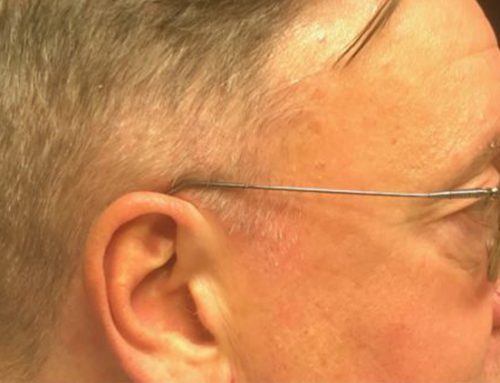You might be surprised by just how many men are having plastic surgery these days. Men in Brazil, Japan, Germany, and across the United States. And yes, men right here in Collin County, Texas.
Across the world, men have nearly 14 percent of all cosmetic procedures, according to a 2015 report. That’s 2.5 million cosmetic procedures a year. And this appears to be an upward trend, especially in the United States.
“Male plastic surgery rates have significantly increased since 2000 and the notion that cosmetic procedures are just for women no longer exists.” — American Society of Plastic Surgeons
Why are more men having plastic surgery?
While we can’t give a definitive answer here, we know it is not because men are less attractive than they used to be. Men today have many of the same issues with aging, body image, and societal pressures that they have always had. But doing something about any one of these things, namely having a cosmetic procedure to change it, has become much less stigmatized.
With the loosening of these taboos, plastic surgery practices (ours included) have increasingly opened their doors to men. This means creating a more unisex environment and taking into account the unique physical and psychological needs of each patient, no matter their gender.
Which procedures do men most often get?
Non-Surgical
While men still don’t come in for a cosmetic procedure nearly as often as women, their visits are rising quickly, especially in the area of non-surgical procedures. Since the year 2000, botox injections for men have risen 355 percent. In 2015 nearly 500,000 botox injections were given to men, according to a report by the American Society of Plastic Surgeons. Other non-surgical procedures are also increasingly sought out by men.
The most common non-surgical cosmetic procedures for men are listed below:
- Botox injections
- Laser hair removal
- Microdermabrasion
- Soft tissue fillers
Surgical
Men get about 8 percent of the total number of surgical or reconstructive procedures performed in the U.S.. Coming in at number one for men? The nose job, or rhinoplasty. In 2015, the two most commonly performed procedures on men were rhinoplasty and eyelid surgery. But, the two fastest rising procedures among men, according to the American Society of Plastic Surgeons’ 2014 procedural statistics, are pectoral implants and male breast reductions.
Here are the most common types of plastic surgery requested by men:
- Nose reshaping (rhinoplasty)
- Eyelid surgery (blepharoplasty)
- Male Breast reductions (for gynecomastia)
- Liposuction
- Facelift
- Pectoral implants
What are the special considerations for men?
“Our society places a high value on looking young and fit. Today, men of all ages and all walks of life are requesting plastic surgery for cosmetic reasons.” – American Society of Plastic Surgeons
Men often have different aims than women when having plastic surgery. According to a 2016 survey review, they tend to be less inclined to have procedures associated with long downtime. This may be because of social stigma or a desire to get back to work sooner. They also tend to choose just one surgical procedure at a time, while women are more likely to combine them.
Men also have different anatomy and physiology that needs to be considered when planning any kind of plastic surgery. For example, men tend to have different bone structure, with larger foreheads, flatter cheeks, and a more prominent brow bone. Building up too much facial volume can make a man look more threatening or aggressive than he wants. Conversely, taking away too much volume can result in more feminization than desired.
Men also tend to have larger muscles, thicker skin, and more body hair. Some research has also shown that men have a more robust blood supply to the skin, which can have an effect on bleeding and bruising.
Plastic surgery for men and women is as different as men and women themselves. But one thing we all have in common – we want to look our best. A good plastic surgeon can help both men and women do just that.
If you are a man considering plastic surgery and you have any questions, contact us today and schedule your consultation.





